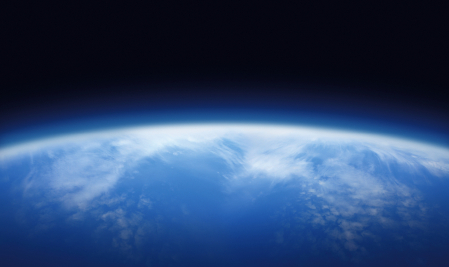 Submitted by Ishwa on
Submitted by Ishwa on

The world is an illusion. This is a view held by Vedanta, Sikhism, Buddhism, Plato, Arthur Schopenhauer, Christian Science, and A Course In Miracles.
Contradicting this view is your own sense experience of realness, the constancy of stimulus, the enduring nature of time and events.
Which view is correct? The idea of the illusion or your experience of the realness?
This answer proposes an objective observer, one who is not part of the system that is being observed. Newton held that time is absolute. Einstein held that it is relative to the observer. Perhaps that same paradigm shift can be applied to answering the question of what is real and what is not.
Those who propose that the world is an illusion are correct.
Those who propose that the world is real are also correct.
The idea that the world is an illusion can be argued in the following way.
1. You do not see the world as it is.
You see the world as you are.
This happens in two ways:
One, you can never escape your subjectivity. You may claim that the world is objective, but this is a claim made from the subjective state. Hence, if you were to lose your mind, you would also lose the world. Without an observer, there is no world. With your disappearance, the universe disappears. Does it exist despite you? If you are not there to ask or hear the answer to the question, it has no meaning.
Two, the world that you see is a direct result of your experiences in it. A rock is not just a rock; it is also your memory of all rocks seen by you. When what you see is more complex and engaging, you experience more emotions, sensations, and ideas about it. Thus, you never really see anything as it is. You only see it through the lens of your own thoughts about it.
2. All forms will pass away.
Entropy is built into the system. Nothing can escape this iron law of nature. Neither beauty nor truth, wealth nor power, genius nor intent ever last. Death and decay is the lot of everything, from atoms to stars, from our own sun to the universe itself. However, this collapse is a dissipation of energy, not an absence of it. According to the law of conservation of energy, which has never been refuted, energy can neither be created nor destroyed. What dies, then, is the form of things, the structure the energy was supporting.
3. The microscopic.
On the level of atoms, a vast space exists between the electrons and the nucleus, and even the subatomic particles are not solid bits of matter but transient energy forms that appear and disappear and reappear again. It is mainly empty space.
4. The macroscopic.
On the level of the cosmos, a vast space exists between stars and moons and planets, gas clouds and nebulas and galaxies. The universe, too, is mainly empty space.
5. The field of all possibilities.
On the level of the consciousness that organizes all things, this world is only another possibility out of an infinite choice. How many worlds with sentient beings exist? Is our universe only an electron in a cosmic atom? Given a field of infinite choices, how much weight does one choice hold?
The idea that the world is real can be argued in the following way.
1. What you are experiencing is real to you.
When you think of the world as an illusion, a sense of despair arises because it slights the beauty of your realness. It is pleasurable to touch and hold, to see and hear, to act and change things. It is ennobling to see the vast sky above your head and feel the wind in your hair and hear the squawk of a passing bird. It means much for us to be here and to be alive in this moment.
Neither science nor philosophy can deny the realness of your experience.
And in this context, even your dreams are real enough, because while you are in them, your entire experience is authentic enough for you. If you are being chased by a lion in your dream, it will feel as real to you as if you were being chased by one in the waking state.
2. Who you are is important to you.
Your life is important. You desire to be more than you currently are because you can feel the vast throb of life within you expanding ever forward to know more, experience more, and touch a fullness not yet known.
Your past is not just useless memory but a scrapbook of struggle and change, triumph and adversity, risk and new learning. Your present is the vividness of your current experience. Your future is your promise, to yourself and to the world.
Reality, then, is not fixed. It is an interpretation of consciousness and how it is interpreted depends on the inner and outer experiences of the observer. The world you live in is real enough to you as you live it. If this world is an illusion, does it mean that there is a really real world, as Plato conjectured. Probably not. If this world is an illusion, then so, too, are all worlds. And if this world is real, so, too, are all worlds.
Appreciating the miracle of having a consciousness to live in a world may be all we need to know to live happy, fulfilling lives, whether in this world or in other worlds which we will transition into after this one.
Consciousness, like the law of conservation of energy, can neither be created nor destroyed. Where you find consciousness, you will also find energy structured into the form of a world. And since consciousness never dies but appears to only grow increasingly more refined and sophisticated, worlds, too, probably evolve along similar lines. Are these worlds illusory or real? They are real enough to those who live in them.
Saleem Rana
http://www.articles3k.com/article/936/163539/The_World_As_Experience_And_Idea/
- 715 reads